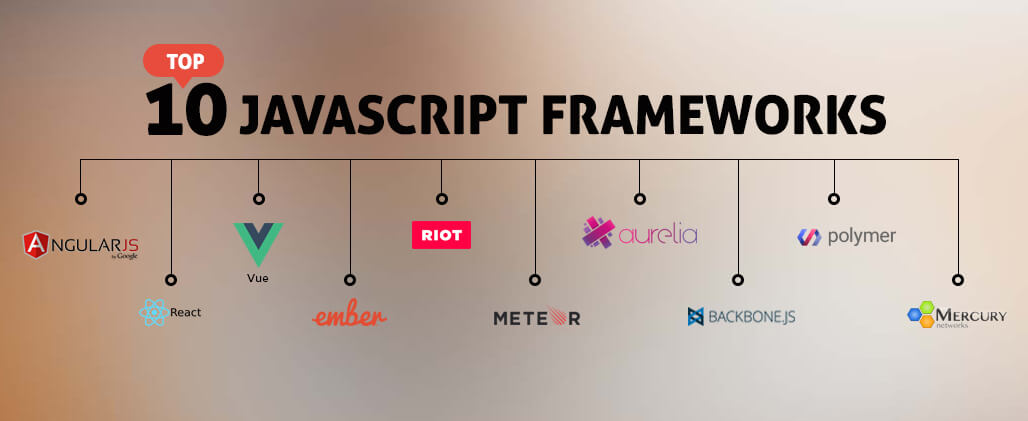News Blast: Your Daily Update
Stay informed with the latest news and trends.
JavaScript Frameworks: The Battle of the Titans
Explore the fierce showdown of JavaScript frameworks in our epic battle analysis! Discover which titan reigns supreme in web development!
Understanding the Key Differences Between React, Angular, and Vue
When considering modern web development frameworks, it’s essential to understand the key differences between React, Angular, and Vue. Each of these frameworks has its unique approach and features that cater to different project requirements. React, developed by Facebook, is primarily a library for building user interfaces and focuses heavily on the component-based architecture. It enables developers to create reusable UI components, enhancing maintainability and testing. On the other hand, Angular is a full-fledged MVC framework maintained by Google, offering a comprehensive solution that includes everything from routing to state management, which can accelerate development for large-scale applications.
Vue, created by former Google engineer Evan You, strikes a balance between both React's simplicity and Angular's comprehensive nature. This progressive framework allows developers to adopt it incrementally, making it a versatile choice for projects of varying complexity. While React's virtual DOM provides optimal rendering speed, Angular's two-way data binding simplifies data synchronization. Vue's reactivity system is intuitive and flexible, enabling developers to build complex applications efficiently. In summary, choosing between these frameworks often depends on the specific needs of your project, team expertise, and personal preference.

Which JavaScript Framework is Right for Your Project? A Comprehensive Comparison
As you embark on selecting a JavaScript framework for your project, it's essential to consider the unique requirements and goals of your application. Frameworks such as React, Angular, and Vue.js each provide distinct features that can impact your development process. For instance, React is renowned for its flexibility and component-based architecture, making it an excellent choice for building high-performing user interfaces. On the other hand, Angular offers a comprehensive solution with built-in tools for routing, state management, and form handling, which can be advantageous for larger enterprise-level applications.
When evaluating which framework to choose, you should also consider factors such as the size of your development team, the availability of community support, and the learning curve associated with each framework. Vue.js, for example, is often praised for its approachable documentation and ease of integration, making it suitable for beginners or projects that require a quick turnaround. In contrast, if you're working on a complex web application that demands robust functionality and scalability, you might lean towards Angular or React. Ultimately, the right choice will depend on aligning the framework's strengths with your project's specific needs.
The Future of JavaScript Frameworks: Trends and Predictions
The landscape of JavaScript frameworks is constantly evolving, driven by the ever-increasing demand for dynamic and responsive web applications. As we look to the future, several key trends are anticipated to shape the development of these frameworks. First, the rise of server-side rendering and static site generation is likely to gain more traction, propelled by frameworks like Next.js and Nuxt.js. This shift will enhance SEO performance and improve load times, ultimately leading to a better user experience. Additionally, the focus on modular architecture and micro-frontends will facilitate scalability and maintainability, allowing developers to build applications that evolve as user needs change.
Furthermore, the JavaScript ecosystem is expected to see an increase in the adoption of TypeScript as a standard for writing safer and more manageable code. This trend is highlighted by the rising popularity of frameworks such as Angular and Vue.js, which have embraced TypeScript to provide better tooling and error handling. As the community continues to advocate for better build processes, tools like Webpack and new advancements in code-splitting techniques will further optimize application performance. Overall, the future of JavaScript frameworks is poised for exciting developments that will empower developers and enhance the capabilities of web applications.